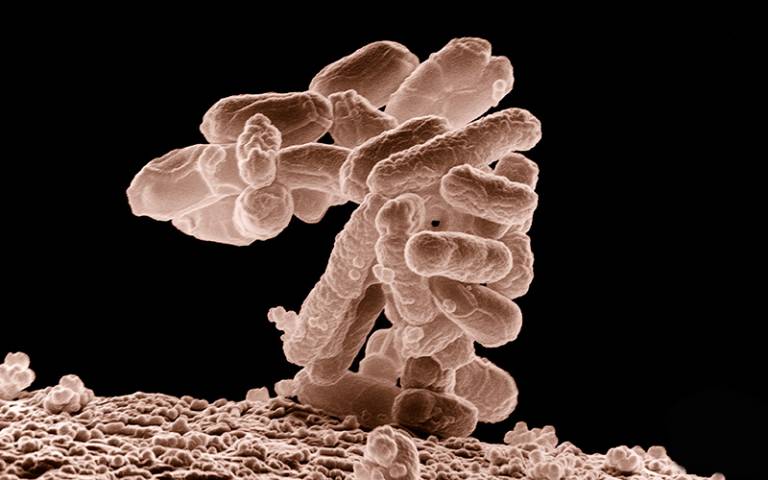Applying AI to tackle antimicrobial resistance
25 June 2019
UCL, UCLH and Great Ormond Street Hospital (GOSH) are set to apply artificial intelligence to tackle the global threat of antimicrobial resistance (AMR) after being awarded £3.3m in government funding.

Professor Judith Breuer (UCL Infection & Immunity) will lead a team of researchers and clinicians for the ‘Precision AMR (antimicrobial resistance)’ initiative to improve tests for antimicrobial resistance and to develop AI (artificial intelligence) algorithms to rapidly interpret test results.
They aim to enable earlier diagnosis and treatment with the right antibiotic; ensure treatment with the right dose and combination of drugs; and prevent the spread of antibiotic resistant infections.
They also hope to be able to confirm more quickly cases where no antibiotic resistant infection is present in patients, so that unnecessary treatment is not given.
The funding to UCL, UCLH and GOSH is part of a total of £32m committed by the Department of Health and Social Care (DHSC) to research centres across the country to improve prescribing and identify patterns of resistance.
For the ‘Precision AMR’ initiative, researchers will improve tests for infections which are resistant to antibiotics, develop algorithms to analyse results of these tests, and conduct clinical trials of diagnostic tools which improve identification of antimicrobial resistance.
The team will apply machine learning approaches to the analysis of AMR tests, where algorithms make better predictions over time as they analyse more data.
And the team will link up this data with electronic patient records to gain information on how clinicians are using test results in clinical care so that prescribing and management of patients can be improved.
They will also invest in new sequencers which look at bacterial DNA to identify mutations which could mean bacteria are resistant to antibiotics.
“Antibiotic resistant infections are now a major global threat to human health requiring urgent action, and we’re delighted to receive this funding in order to accelerate the development of new tools and tests for patients,” said Professor Breuer, who is supported by the NIHR University College London Hospital Biomedical Research Centre, and will be working alongside colleagues in her division and in the UCL Great Ormond Street Institute of Child Health.
“We’re particularly excited about applying AI and machine learning to this problem, and the potential it has to improve diagnosis and treatment of patients,” she added.
Professor Peter Wilson (UCLH and UCL Infection & Immunity), an AMR expert on the team, said: “At present, we can quickly identify whether an organism can cause infection, but rapid detection of antimicrobial resistance has proved more difficult.”
“If we can find ways of rapidly detecting which organisms are resistant to antibiotics, we would be able to offer earlier, targeted antibiotic treatment which would cure the patient more quickly and prevent bacterial resistance emerging. This will help in situations where we really need it – in the critical first days of sepsis, for example,” he said.
At the same time as announcing the £32m in funding for UK research centres, the government also said it will be retaining the expertise of outgoing Chief Medical Officer Professor Dame Sally Davies, as UK Special Envoy on antimicrobial resistance.
Public Health Minister Seema Kennedy said: "Antibiotic resistance poses an enormous risk to our NHS – we are already seeing the harmful effect resistant bugs can have on patient safety in our hospitals. It is vital that we retain the irreplaceable expertise of Professor Dame Sally Davies – an international expert in AMR – and continue to invest in research.”
Links
- UCL Antimicrobial Resistance
- Professor Judith Breuer's academic profile
- Professor Peter Wilson's academic profile
- UCL Infection & Immunity
- UCL Medical Sciences
Source
Image
- E. coli bacteria. Credit: Agriculture Research Service, USDA, Source: Wikimedia Commons
Media contact
Chris Lane
tel: +44 20 7679 9222
E: chris.lane [at] ucl.ac.uk
 Close
Close

